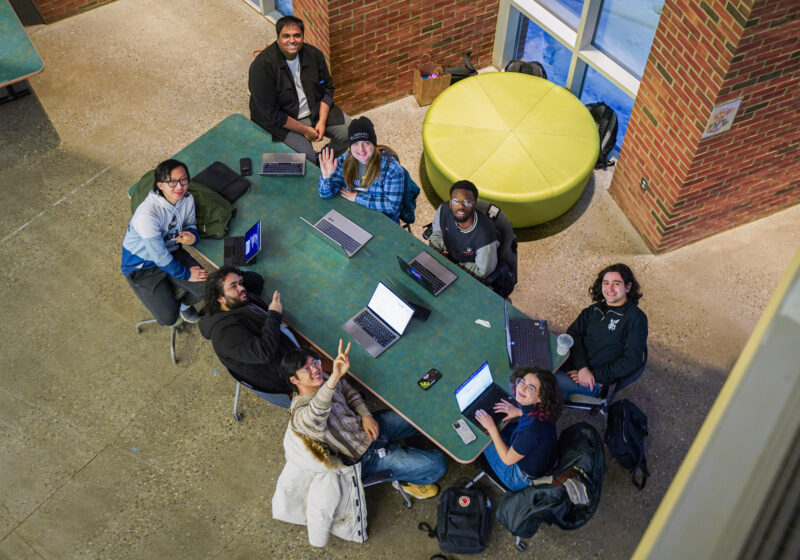Antibiotic-free chicken will be the only chicken served at most campus dining locations by June, University officials announced on Jan. 29, a move six years in the making that will not raise prices for students this year.
The initiative, announced via press release, will affect all on-campus dining halls and stations except the national brands Panda Express and Blimpie, although the school is in talks with the two companies to adopt the new policy.
Seventy percent of chicken served on campus is currently compliant with the antibiotic-free chicken pledge, but that’s not to say that there haven’t been complications. Already, one of the school’s sources had to be swapped out due to quality concerns about chicken in Wilson Commons, a change that occurred in the last couple of weeks.
“We had a nugget and tender we weren’t happy with that was antibiotic-free […] and we’re sourcing a better product now,” Senior Executive Chef Antonio Pignagrande said. In the future, he said, “you may see some juggling here and there because, again, this is a new product for all of us.”
Antibiotic-free chicken, a movement that has been increasing in scope over the last three years, refers to poultry raised at farms that do not feed daily antibiotics to their animals. Often, the chicken will also be raised with additional standards, like being grass-fed, cage-free, or minimally processed.
“Six to seven years ago, we really started talking about what we can do with produce, fruits and vegetables, but also what we could do with our proteins,” Director of Campus Dining Services Cam Schauf said. “We started looking at our options […] and antibiotic-free chicken was on the list.”
The reasoning behind the new chicken was a combination, as much back then as now, of sustainability and quality. “You’re not getting the exact same chicken raised in the exact same circumstances, one with antibiotics and one without,” Schauf said.n taste tests, we can certainly taste the difference.”
The current effort gained strength after another sustainability and quality initiative, grass-fed beef, took off two years ago. At the time, Dining turned its attention to sourcing antibiotic-free chicken for River Campus locations. Two events, a meeting with Congresswoman Louise Slaughter’s office in late 2014 and Freshens’ own interest in antibiotic-free chicken, combined to push Dining Services to make antibiotic-free chicken across campus a reality as soon as possible.
The main problem Dining Services needed to tackle was finding vendors who could actually supply the quantity of chicken necessary to meet the roughly 278-ton yearly demand.
Last April, Dining turned to vendors in New York and beyond, searching for a way to source antibiotic-free chicken without compromising the quantity of chicken served on campus. Starting with vendors to fill the variable demand of Meliora Catering, Dining Services lined up suppliers, like Coleman, who could meet the demand for various parts of the dining ecosystem. In August, Freshens phased in antibiotic-free chicken, with the grill and salad bar in the Pit soon following. At the time, Dining Services hadn’t announced their goals to the students, not knowing how completely they could replace the then-current sources. In November, the executive staff at Dining Services finally felt they would be able to implement a full conversion to antibiotic-free chicken and were nearly ready to make that promise known to students and staff.
There are, however, caveats to antibiotic-free chicken in general. Studies show it takes three to nine days longer to raise a chicken to market size, when compared to those given daily antibiotics. Additionally, illness and other factors mean the mortality rate for chickens tends to increase at farms raising chickens antibiotic-free. These two factors contribute to significantly increase the cost of antibiotic-free chicken as compared to the current status quo.
Despite this cost, however, Dining Services promises there will be no changes this year to the prices students see in their dining plans, or at the Commons.

